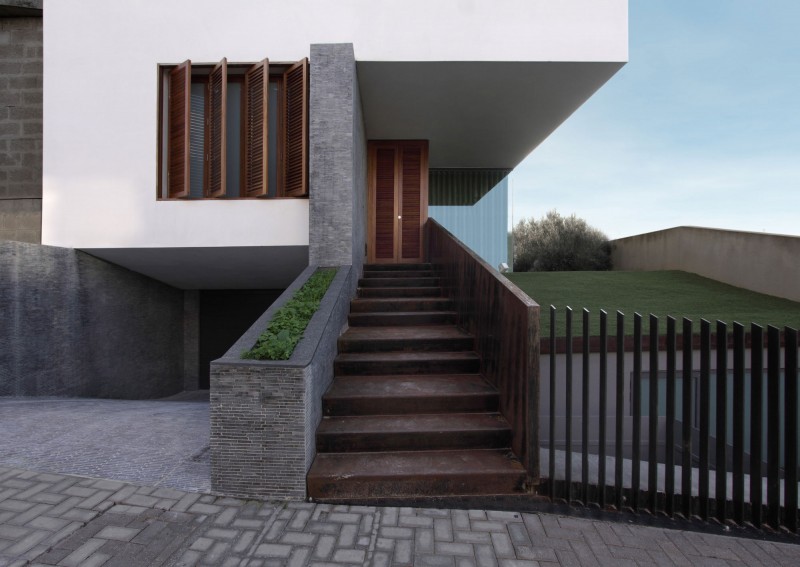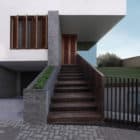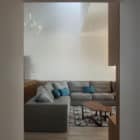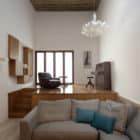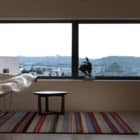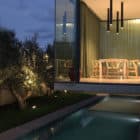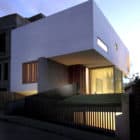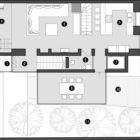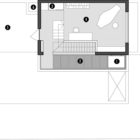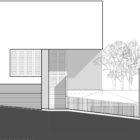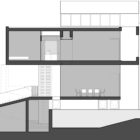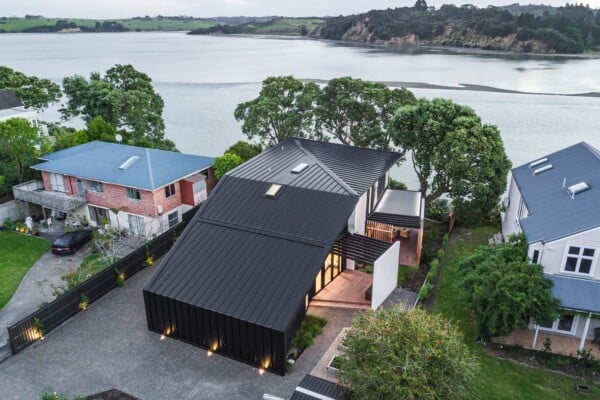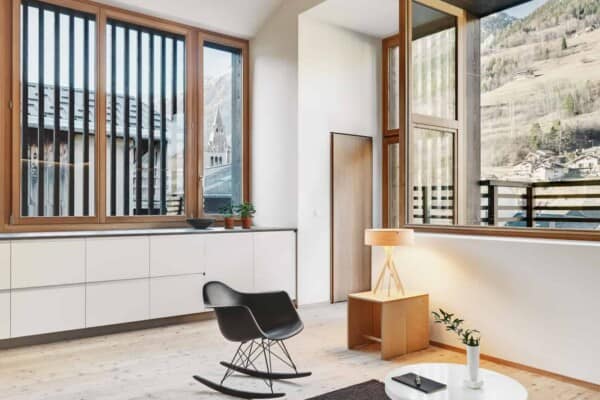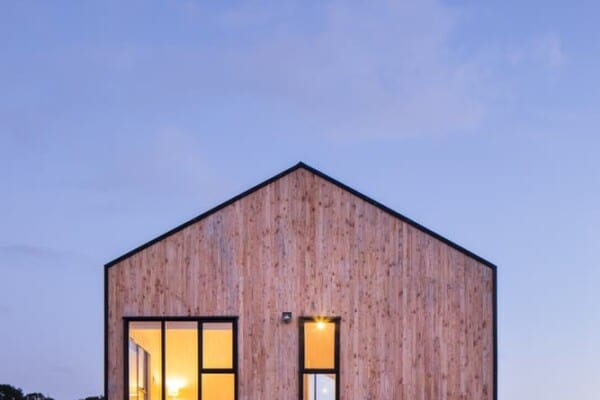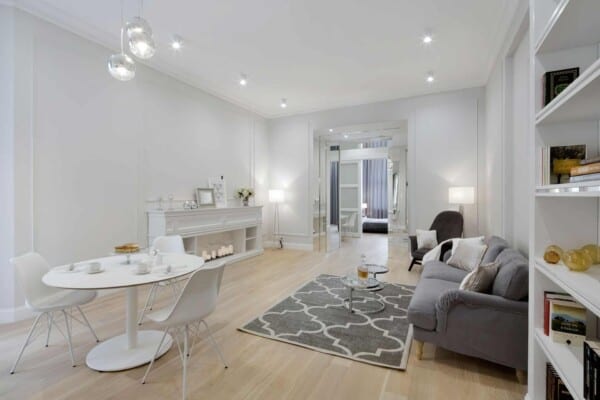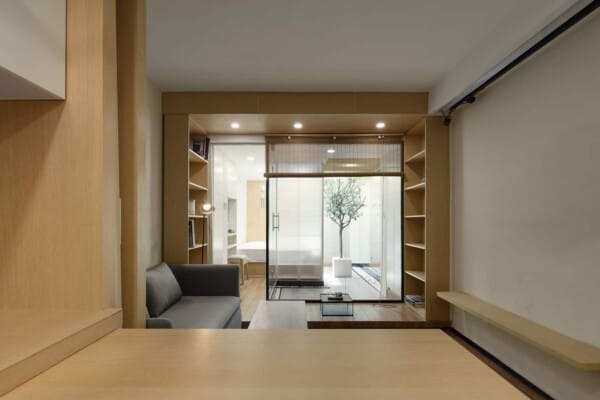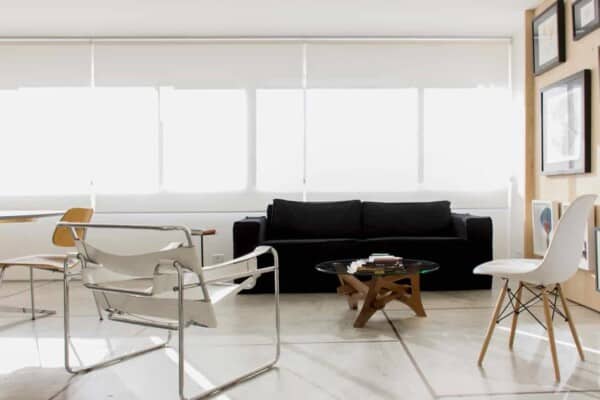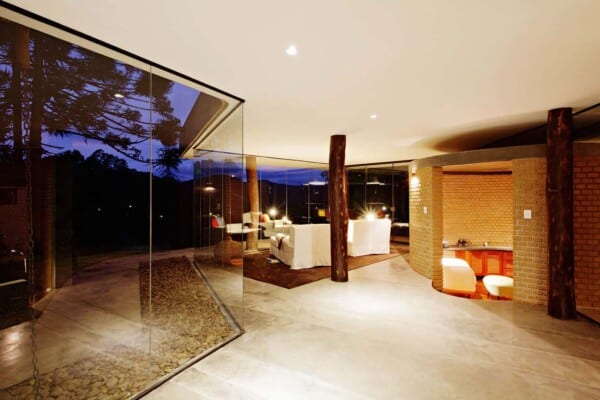Hanging Home is a project completed by Chris Briffa Architects in 2011, and is located in Naxxar, Malta.
The semi-detached family home is decorated in an understated, modern, comfortable manner.
Hanging Home by Chris Briffa Architects:
“A few years ago, Richard England’s celebrated ‘Villa la Maltija’ and its surrounding gardens in San Pawl tat-Targa (Malta) were demolished to make way for semi-detached villas. Permission was granted for the developers to divide the estate into parcels of land with an average area of 250 square metres (2690 square feet) each.
The next six years saw a busy construction landscape of the twenty or so structures – each by a different owner employing a different architect – all designed and built at pretty much the same time; yet all very different from each other. A sort of microcosm of local middle-class architectural tastes, the neighbourhood varies in style; from traditional to modern to nondescript. One of these lots was entrusted to Chris Briffa Architects, who designed and recently completed this sculptural white cube with seemingly very few apertures, hanging over a narrow but gripping side-garden.
The clients – a family of three – needed to capitalize on their modest 250 square metres (2690 square feet) of land. While zoning regulations allowed only 40% site coverage, they presented the architect with a very demanding brief: an open plan living area, a separate dining room, two large bedrooms with bathrooms, an independent home-office, a study, a three-car garage, a pool, as much garden as possible and an area to enjoy their daughter’s piano playing.
After numerous hours of design planning and meetings, Briffa proposed cantilevering practically half of the house over the pool area, in order to liberate more space in the garden, while still falling within planning regulations. A scale model illustrated the proposal’s use of space, with a skillful juxtaposition of exterior and interior spaces, and the clients agreed to the design. The layout not only satisfied their brief, but also provided a generous outdoors area compared with the small side-terraces of similar surrounding properties. The clients moved in at the end of 2011, after a saga of permit delays, construction hiccups and bespoke interior finishing.
From the street, a steel staircase bridges over the underlying front garden and invites us beneath the sheltering white mass. High louvered doors, similar to traditional Maltese ‘persjani’, lead to the interior. Essentially two opposing openings and a staircase, the entry hall is compact but motivating: an unassuming composition of horizontal lines of glass, steel, timber and marble. One opening is a doorway into the living area, while the other a narrow window to the outside; catching a glimpse of water from the pool beneath. The hall extends upwards onto a light steel staircase, sandwiched between an eight-metre-high (26-foot-high) space naturally lit from above.
The long living area – a double-height volume attached to a low one – accommodates the piano salon (with enhanced acoustics thanks to its high ceiling), the sitting room, concealed stairs to the garage and the sunny kitchen/breakfast area. The dining room and guest WC are each hidden behind a composition of oak doors and storage cabinets, which also hides the vertical services and cooling system.
The dining room extends into the garden on a cantilevered concrete slab enclosed by three glass walls; hovering above the deep end of the pool surrounded by south-facing olive trees. This perimeter garden – with its twelve-metre (39-foot) long pool, olive trees and outdoor eating area – enjoys privacy from the street thanks to an elevated, semi-basement room which houses the home office.
Perhaps the most interesting (and the architect’s favourite) internal space, this peculiar home-office is partly underground, sharing a wall with the pool while looking up to the olive trees and the cantilevered dining slab. Water reflections from the pool dance on its inclined ceiling in the early summer months. The inspiring home headquarters enjoys a separate access from the street and additional light and ventilation from the front yard of the house.
Upstairs, the main bedroom suite is entirely cantilevered over the whole length of the house. A progression of personal privacy levels, it consists of a linear arrangement of terrace, sitting area, walk-in wardrobe, bathroom and bedroom; with a low level window strictly controlling privacy and reflected natural light.
With a low-energy, water-based under-floor heating system keeping the house warm in winter, the architects’ main concern was to keep the building cool in the summer months. Every single room enjoys cross-ventilation from opposing windows, and the south-facing dining area becomes a terrace when the large doors are opened. The main ‘lung’ of the house – the space above the main staircase – acts as a cooling tower in summer, channeling the heat up from the main areas while scooping the cool, prevailing summer breezes from the uppermost clearstory windows.
The hanging home – pure and weightless from the outside, slowly revealing its balmy spaces as one explores the interior – is the result of a healthy client-architect relationship. ‘We were allowed to explore a variety of architectural solutions’, says Briffa ‘…all the way to the last detail. We do our best to help clients visualise our goals within their budget, but it often takes a leap of faith …'”







Photos by: David Pisani


